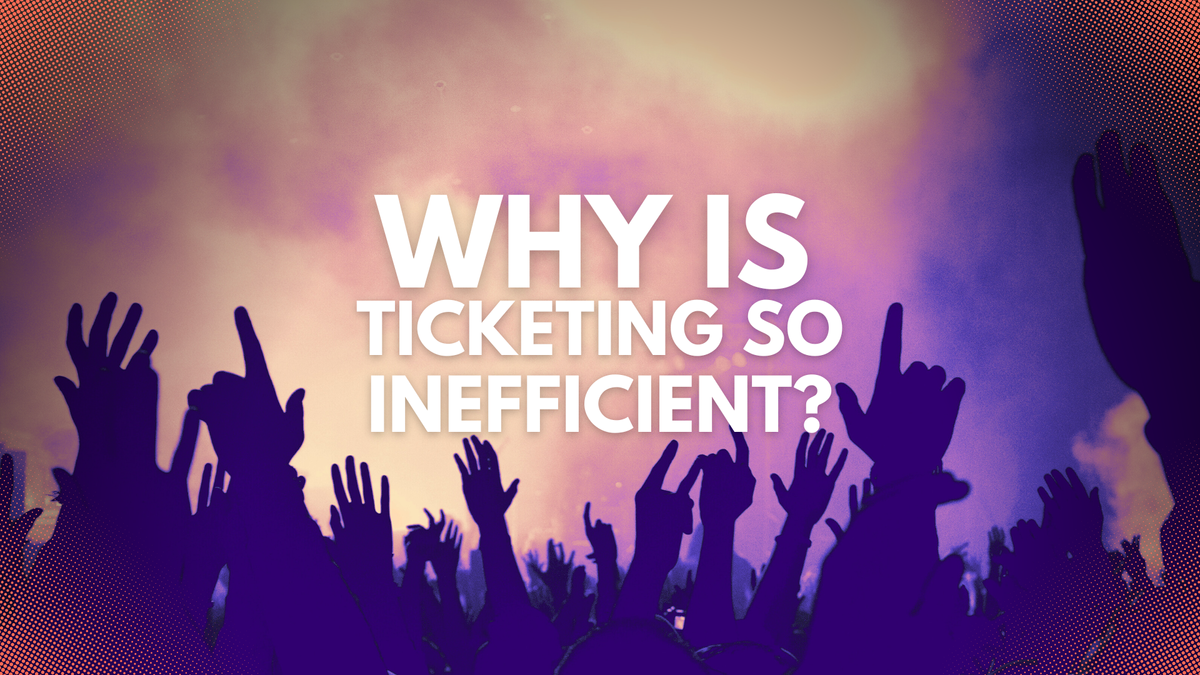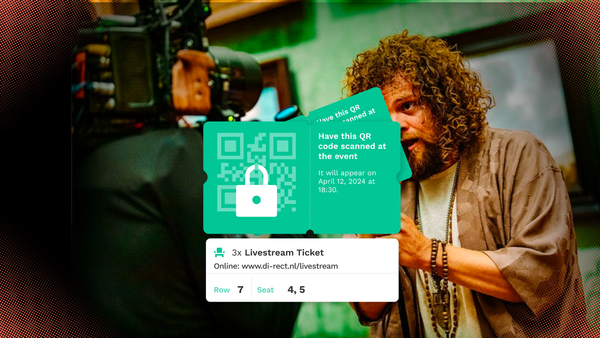
One doesn’t have to go far to come to the conclusion that the current ticketing market is inherently broken. Almost every week an incredible new case of fans being duped or artists unsuccessfully fighting fraud and scalpers pops up in the media.
There are many recent examples of ticketing issues, ranging from fake world cup tickets, Ed Sheeran’s own attempt at fighting scalpers, and a huge amount of Beyoncé / Jay-Z fans who were beaten by bots and forced to pay exorbitant prices for their tickets.

With all this mainstream attention for this obvious issue (I feel epidemic is a fair assessment) that’s hurting the general public, you would assume that all parties involved would be scrambling to find a way to protect the innocent consumers — be it from a legislative, technological or even an altruistic angle. Except, so far: nothing. Why is this problem not being solved?
The short answer:
Centralized ticketing companies have a black-box fee and ownership model. This means that the buyer of a ticket does not know what he or she is paying for, what the fair-value of the ticket was, and whether the purchased ticket is even legit or not. This mysterious, non-transparent system provides enough smoke & mirrors for parties to make huge profits that are inconsistent with their added value to the ticket the event is for. A common perception is that only shady individuals who wear ski-masks while using their computer and have robot-armies at their disposal profit off of this construction, but that’s not the case. For some reason, the current ticketing conglomerates seem to be fine with the way things are.
This means they are either:
A.) Lazy;
B.) Weary of innovation;
C.) Profiting off of the status quo;
D.) All of the above.
The longer answer:
It’s a choice
If event organizers haven chosen to use a ticketing system that allows a vibrant secondary ticketing market to exist, we find that they are facilitating the emergence of non-transparent business models. By choosing such outdated ticketing technologies they create a black-box around their tickets, robbing fans and artists of the data about who profits from the tickets they buy.
We can only assume what the reasons for choosing scalp-able static QR code ticketing systems are.. In the most optimistic case it’s due to the fact that these organizers are not very innovative. Or they are choosing this ticketing method because it brings in profit streams that they don’t want the public to know about. This can only exist because there is a total black box that feeds on desperate fans just wanting to see their favorite artist. Changing ticketing solution would be killing their bottom line (i.e. they are earning money by setting tickets aside to sell at higher prices via third parties). Whatever the motivations may be, we believe that the public deserves to know who is earning from the premium they are paying.
You can take an in-depth look at the screwed up state of the live-event ticket market in this excellent episode of the Freakonomics Radio podcast on Youtube below. GUTS Tickets is mentioned as a possible solution at 43:15.
(Here’s the podcast link if you prefer listening there.)
While the example of a concert is the most relatable for the general public, this problem and its symptoms exist in many other markets. Let’s take sports for example. While the buying of large quantities of tickets for sports games with the intent to sell them for profit is mostly illegal or at the very least not allowed, there is a huge, public market for these tickets. Insane mark-ups and fake tickets have become a regular occurrence.
Here’s a good example of this, showing how resale platforms go to work making money off of the backs of soccer fans:
These scalpers, ticketing companies and their subsidiaries won’t part from their fraudulent ways anytime soon. It’s simply too lucrative and they’ve become addicted to having their cake, eating it too, and then going on to sell their cake-filled excrement for further profit. We’ll have to take matters into our own hands.
Let’s think in solutions
Keeping artists’ feet to the fire when choosing a certain ticketing system can be rather difficult from a regulatory perspective. History has shown that regulatory interference in business won’t always result in a more efficient industry. In our eyes, government regulation should force organizers to publicly disclose the tickets sold and resold during an event.
In the end, we think that artists, organizers and thus ticketing companies should publicly declare the number of tickets sold, resold and ‘left behind’. We believe that this type of ultimate transparency will guide artists and organizers to follow a strategy that is socially defendable and desirable.
We believe that by removing the black box nature of the ticketing market and creating an open and transparent record of value flows, ticketing companies and event organizers will naturally keep in check. With access to this data, consumers can decide for themselves and vote with their wallets.
Making The Better Option Easier to Take:
The ethos above is also why we've built our system at GUTS to make it as easy as possible for artists, organisers and promoters to eliminate scalping and control their secondary market. If the benefits of providing fans with a safe experience that keeps marketplaces at bay is as attractive as possible - such as the case with being able to re-sell tickets within app at the organisers discretion for rules, then swapping from outdated systems becomes a far easier choice.
Curious how our secondary market system works? Tuck into the article below and reach out to our sales team if you'd like to take your step towards regaining control of your ticketing:





